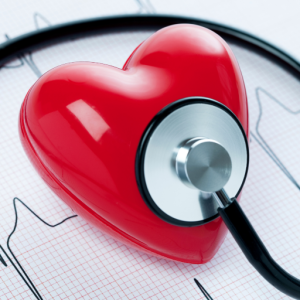Heart Attack Signs and Symptoms
 With Damar Hamlin’s frightening collapse and heart stoppage on the field Jan. 2 during the Monday Night Football game and Lisa Marie Presley’s untimely death Jan. 12 from cardiac arrest at the age of 54, the topic of heart health is trending in a troubling way.
With Damar Hamlin’s frightening collapse and heart stoppage on the field Jan. 2 during the Monday Night Football game and Lisa Marie Presley’s untimely death Jan. 12 from cardiac arrest at the age of 54, the topic of heart health is trending in a troubling way.
It seems like an unbelievable statistic, but someone in America suffers a heart attack every 40 seconds. A heart attack, or myocardial infarction (MI), happens when a part of the heart muscle doesn’t receive enough blood flow. If a person experiences a heart attack, the longer they go without treatment, the more damage is done to the heart muscle.
The main cause of a heart attack is coronary artery disease (CAD). In other instances, it is caused by a sudden contraction of the coronary artery that stops the blood flow to the heart muscle.
According to the CDC, the five major symptoms of a heart attack are:
- Pain or discomfort in the jaw, neck or back
- Feeling weak, light-headed or faint
- Chest pain or discomfort
- Pain or discomfort in arms or shoulder
- Shortness of breath
Other symptoms of a heart attack could include unusual or unexplained tiredness and nausea or vomiting. Women are more likely to have these other symptoms.
Call 9-1-1
If you are concerned you or someone else may be experiencing a heart attack, you should call 9-1-1 immediately. The quicker you get to the emergency room and get treatment, the better your chances are for survival and to reduce damage to the heart muscle. When you arrive at the hospital, your care team will run tests to determine if you have had a heart attack and whether you will need a cardiac intervention.
Concerned about heart health?
Speak with your primary care provider about your heart health, visit Memorial Heart Care for an overview of our services or seek out a specialist at Memorial Specialty Care Cardiology.
Related Articles
Less-Invasive Advances in Heart Surgery
Two Heart Attacks. Two Stents. One Day.
Kicking Off the Workday with a Heart Attack